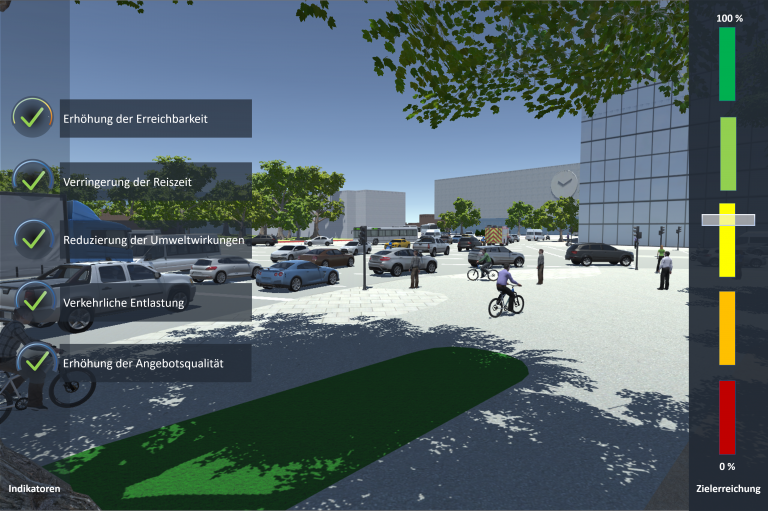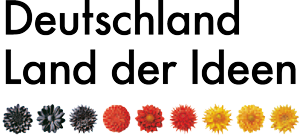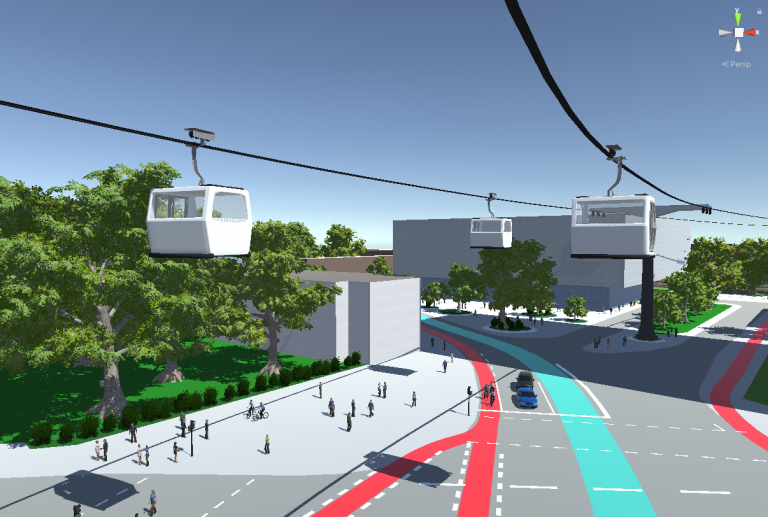Visualization, simulation and communication. There is a huge number of conceivable applications which can be planned and prepared in our visions of future mobility strategies and infrastructures with the help of VirtualCity.
Robert Classsen, Senior Developer – Algorithm and software development, Future Mobility Solutions GmbH

The growing complexity of the mobility sector, the limited possibility of creating realistic conditions for planning innovative mobility strategies and a lack of public acceptance of potentially disruptive mobility services present enormous challenges to the entire sector. And this is where VirtualCity@FMS comes into play: With this tool, traffic situations and infrastructure segments can be both simulated and evaluated.
In only a few minutes, any transport infrastructure can be visualized by a plug and play technology on the basis of GIS data and our company’s own algorithm. The resulting three-dimensional visualization is based on the Unity game engine.
By means of VirtualCity@FMS, different scenarios can be examined, ranging from a panoramic flight over a city up to detailed cases of application of different modes of transport at individual transport hubs. The validity of the simulation environment allows a realistic portrayal of any current and forward-looking scenarios. The interface function will make it possible to integrate a wide variety of data sources such as OpenStreetMap, OpenDrive or CityGML. In the medium to long term, dynamic data feeds will also be integrated.
Good to know
-
The company was established in 2016. At present (August 2020), it has 60 employees.
-
A solution to establish connectivity of VirtualCity with the Sumo simulation software (Open source software of the German Aerospace Center) is currently being developed.
- In 2019, VirtualCity received the eMove360° Award in the “Mobility Concepts” category.

Interview with Prof. Dr. Harry Wagner, CEO, FMS Future Mobility Solutions GmbH
How did you come up with the idea for your project?
Any technology is useless unless it is socially accepted and there is a consumer demand. Especially in the context of mobility, innovative technologies must be profitable to be a potential part of the solution for our global challenges in this field. Thus, in order to shape transport systems with a view to future viability and evolve them to meet the actual requirements, infrastructures must be dovetailed with technological mobility solutions. And this must happen from the initial vision, in a cost-effective, speedy, flexible and user friendly manner. With this conviction, the project was launched with the objective of developing a modular software solution for innovative mobility strategies.
What challenges did you face during implementation?
A great strength of VirtualCity@FMS is, at the same time, one of the greatest challenges, namely the integration of different data formats and subsystems or data sources to form a coherent whole. Thus, for example, static data from OpenStreetMaps are merged with dynamic data, for example from SUMO, as well as three-dimensional and true-to-detail models of buildings and the environment. Depending on the application, only parts of an extensive toolchain are needed. At the same time, care must be taken to ensure that, nevertheless, the simulation is operating stably.
Where do you see your project in five years?
VirtualCity@FMS has established itself as a backbone of our daily work in the field of transport and mobility. Future mobility strategies should present solutions to many societal and environmental issues. However, to be able to make a positive contribution at all, they must be tested right from the initial idea with regard to their feasibility and their impact. We are convinced that with VirtualCity, this is exactly where we can offer sustained added value for all stakeholders.
What is your advice for others who have a good idea and want to translate it into action?
It doesn’t matter whether the idea is born in a company or in a private environment. Talk to others about it and get support on how to further improve your idea and, above all, get to know your target group better. It's better to give it one try too many than one too few – if it was that easy, everyone would do it!
Take people on board who complement your abilities and who have a similar understanding of the objective as you do.



